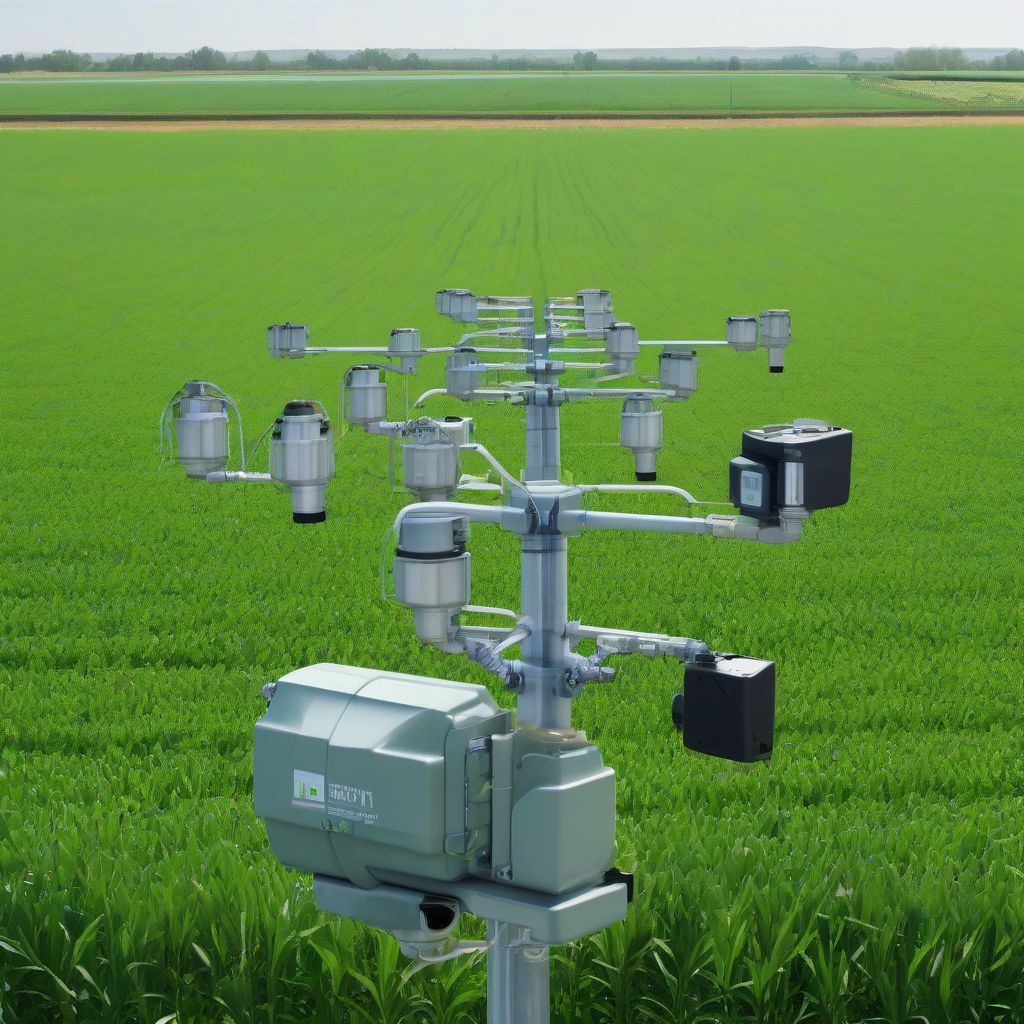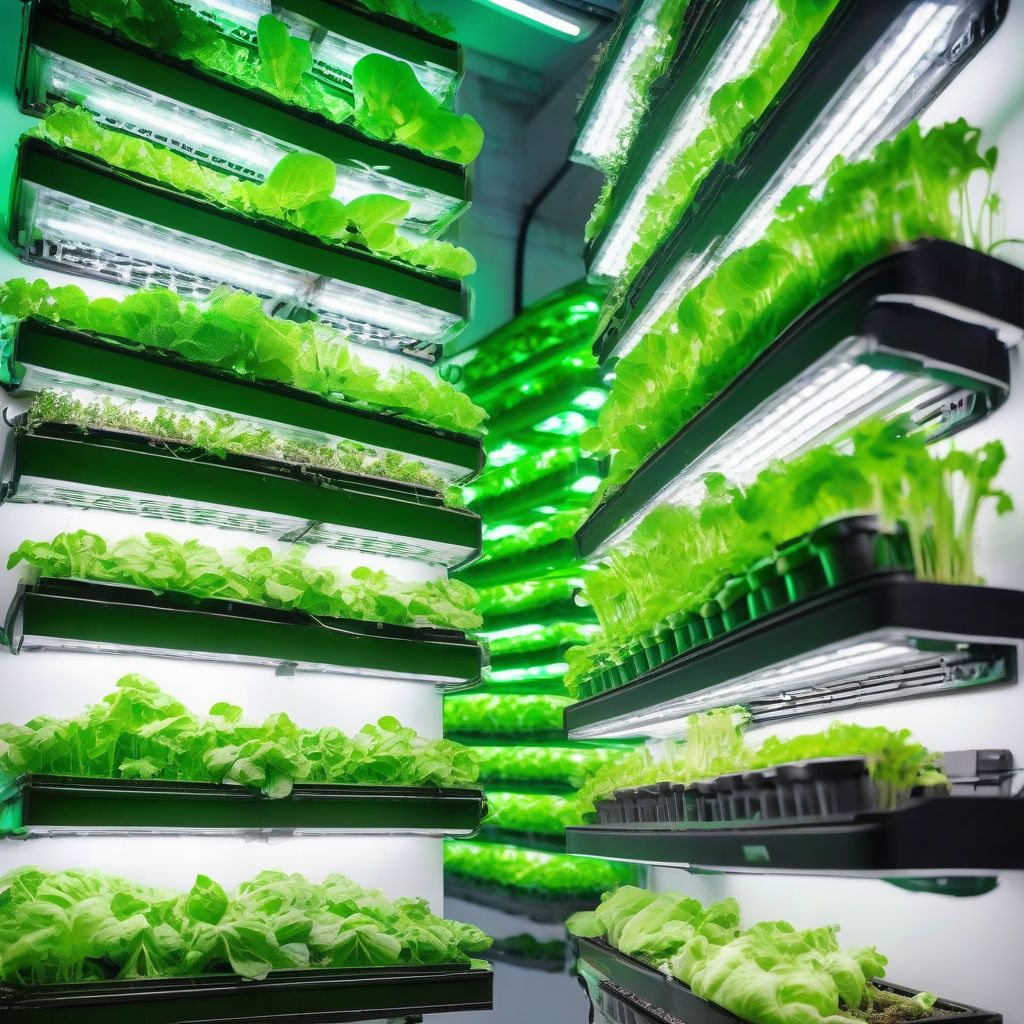Imagine a world where farming practices nourish both people and the planet. That’s the promise of sustainable technology in agriculture. As a nutritionist and meal planning coach, I’m deeply passionate about where our food comes from and how it impacts our health and the environment. It’s incredibly exciting to witness the emergence of innovative solutions that are transforming traditional farming into a force for good.
For centuries, agriculture has relied on practices that degrade soil, guzzle water, and pollute ecosystems. But now, a new era is dawning. Cutting-edge technologies are empowering farmers to increase yields, conserve precious resources, and build a more resilient and equitable food system.
Embracing Precision: How Technology Targets Efficiency
At the heart of this agricultural revolution lies precision – the concept of giving crops exactly what they need, when and where they need it. This targeted approach minimizes waste and maximizes resource utilization, leading to a lighter environmental footprint.
Smart Irrigation: Quenching Thirst, Conserving Water
 Smart Irrigation System
Smart Irrigation System
Water, the lifeblood of agriculture, is becoming increasingly scarce. Smart irrigation systems leverage sensors and data analytics to monitor soil moisture levels, weather patterns, and crop water requirements in real-time. This information enables farmers to deliver precise amounts of water directly to plant roots, minimizing evaporation, runoff, and overall water consumption.
Precision Fertilization: Feeding Plants, Not Polluting Waterways
Overuse of fertilizers pollutes waterways and disrupts delicate ecosystems. Precision fertilization technologies utilize sensors and GPS mapping to analyze soil nutrient content and tailor fertilizer application to each plant’s specific needs. This targeted approach minimizes fertilizer runoff, protects water resources, and reduces greenhouse gas emissions associated with fertilizer production.
Data-Driven Decisions: Empowering Farmers with Insights
Modern agriculture is increasingly data-driven. From soil sensors to satellite imagery, a wealth of information is being harnessed to inform decision-making and optimize farming practices.
Farm Management Software: Orchestrating Sustainability
Sophisticated farm management software platforms integrate data from various sources, providing farmers with a comprehensive view of their operations. This enables them to track crop health, monitor resource usage, identify potential problems, and make informed decisions to enhance sustainability and productivity.
Predictive Analytics: Anticipating Challenges, Optimizing Yields
Imagine predicting weather patterns, pest outbreaks, or disease risks with remarkable accuracy. Predictive analytics leverages historical data, machine learning algorithms, and real-time monitoring to anticipate challenges and empower farmers to take proactive measures, safeguarding crops and maximizing yields.
Robotics and Automation: Planting the Seeds of Efficiency
From planting seeds to harvesting crops, robotics and automation are transforming labor-intensive tasks, increasing efficiency, and reducing the environmental impact of agriculture.
Autonomous Tractors and Drones: Precision Farming at Scale
Autonomous tractors equipped with GPS guidance and sensors can plow fields, plant seeds, and apply fertilizers with remarkable precision, reducing overlaps, minimizing soil compaction, and optimizing input use. Drones equipped with multispectral cameras can monitor crop health, identify stressed plants, and even apply pesticides with targeted accuracy, minimizing chemical usage.
The Future of Food: Cultivating a Sustainable Harvest
Sustainable technology is not just about increasing efficiency; it’s about building a more resilient, equitable, and nourishing food system for generations to come.
Vertical Farming: Growing Up, Not Out
 Vertical Farm with LED Lights
Vertical Farm with LED Lights
Imagine skyscrapers transformed into vibrant farms, growing fresh produce in the heart of urban centers. Vertical farming utilizes controlled environments, stacked layers of crops, and energy-efficient LED lighting to maximize yields while minimizing land use, water consumption, and transportation needs.
Regenerative Agriculture: Healing the Land, Sequestering Carbon
Regenerative agriculture goes beyond sustainability; it aims to restore degraded soil, enhance biodiversity, and sequester carbon from the atmosphere. Practices like cover cropping, no-till farming, and crop rotation improve soil health, increase water infiltration, and reduce the need for synthetic inputs.
Conclusion: A Sustainable Feast for the Future
As a nutritionist, I believe that access to nutritious, sustainably-produced food is fundamental to human health and planetary well-being. Sustainable technology is revolutionizing agriculture, empowering farmers to produce more food with fewer resources, protect our environment, and build a more resilient and equitable food system for everyone. By embracing these innovations, we can cultivate a healthier and more sustainable future for all.
Let me know what you think! Share your thoughts on how sustainable technology is shaping the future of food in the comments below.
[amazon bestseller=”sustainable agriculture”]
